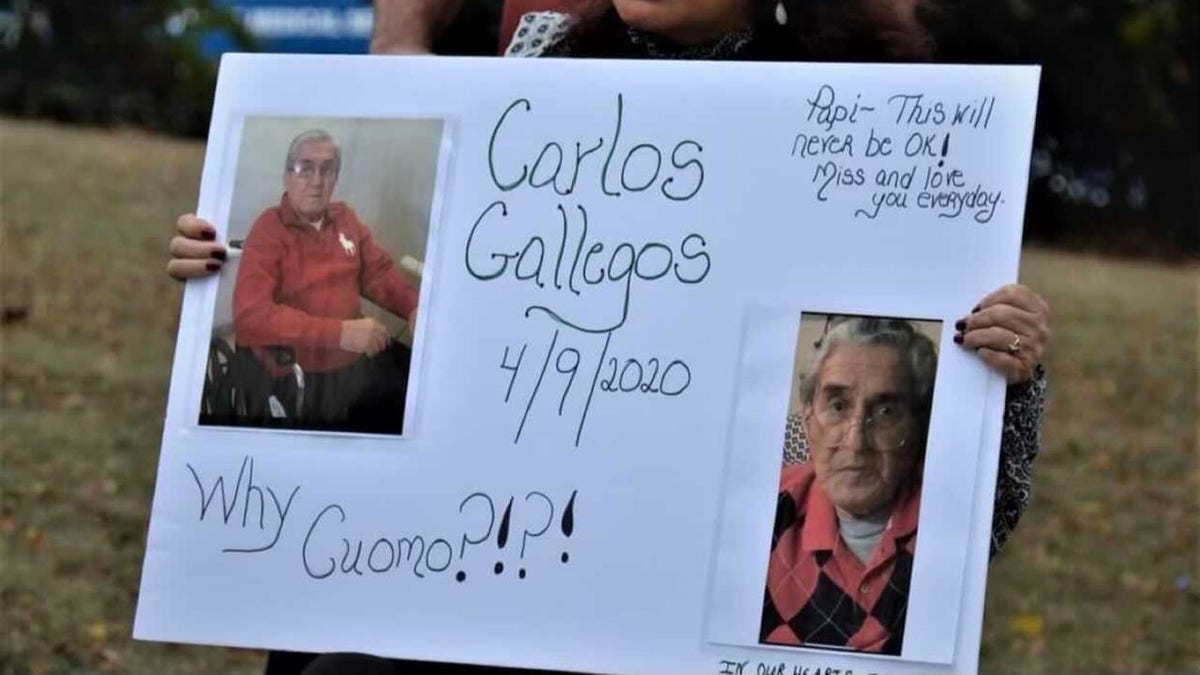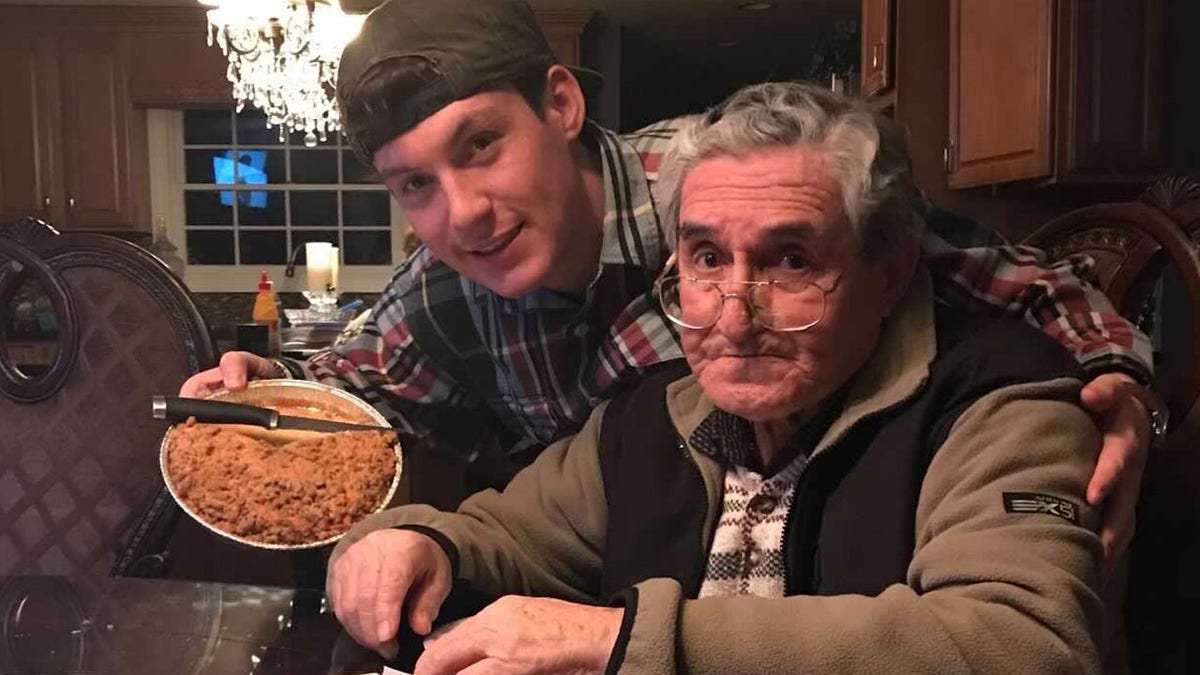Voices for Seniors: Carlos Gallegos
His name is Carlos Gallegos. He was a beloved 80-year-old father, grandfather and great grandfather who attended every family gathering, his daughter, Maria, told FOX News.
His name is Carlos Gallegos. He was a beloved 80-year-old father, grandfather and great-grandfather who attended every family gathering and loved his ex-wife with his whole heart till the day he died.
Gallegos was one of tens of thousands of nursing home patients who succumbed to COVID-19 in a facility far away from his loved ones.
WOMAN WHOSE MOTHER DIED IN NY NURSING HOME: GOV. CUOMO, OFFICIALS 'FAILED MISERABLY'
It was a day his daughter, Maria Porteus, will never forget.
Early in the pandemic, more than 9,000 recovering coronavirus patients in New York state were released from hospitals into nursing homes under the Cuomo administration’s March 25 directive, according to new records obtained by The Associated Press. What ended up happening to Gallegos was a nightmare to Porteus and droves of families whose loved ones lived in long-term care facilities.

Maria Porteus holds up a sign of her father Carlos Gallegos (Maria Porteus)
Porteus' father was one of almost 15,000 seniors in New York who died in a care facility.
Porteus and her family lived only a few miles from the care center located in St. James, New York, and had visited Gallegos often. He loved to walk around and was always in attendance for family holidays, Porteus told Fox News.
GRIEF-STRICKEN DAUGHTER OF NY NURSING HOME VICTIM: I WANT GOV. CUOMO TO ‘KNOW MY MOTHER’S NAME’
"He was such a constant in our lives," Porteus said. "Every holiday, every vacation ... my father was part of everything that we did."
His family was always by his side. That ended, however, in late March when Porteus and her family were told they couldn't visit their father for his birthday and could only see him over FaceTime.
By March 30, five days after the mandate went into effect, a nurse called Porteus to tell her that her father was running a 102-degree fever. It was also the first time it was ever disclosed to her that there had been a mandate.
"Her response to me was 'there was a mandate set by the state and we had to bring in covid positive people into the facility,'" Porteus said.
For about a week, the family desperately tried to contact the nursing home.
Porteus was continuously "calling, trying to get an answer, trying to find out how he was," she said. "It was just difficult to even get through to the nursing home."
By the time she got hold of a nurse, Porteus was informed that her father's fever wasn't going down. At that point, she demanded to be let in.

Carlos Gallegos and his grandson Daniel Porteus. (Maria Porteus)
"And I have to tell you, what I saw was horrible. What I saw was horrible," she said. "You could hear him struggling with the breathing ... It sounded like firecrackers going off on his chest. You could just hear the congestion."
CLICK HERE TO GET THE FOX NEWS APP
For Porteus, and the rest of her family, it has been hard to grapple with the thought that they weren't even given a chance to advocate for him.
"Why couldn't we have been given a little bit of a heads up to have made that decision to take him out?" she said.
Gallegos died on April 9.
Porteus remembers the day vividly as she and her husband were waiting outside in the parking lot by his window.
"I was just sitting there and knowing my father is there and he was dying and there was nothing, nothing I could do, nothing any of us could do," she said.
Porteus couldn't bear the thought that a man, who was so present in their lives, had to die alone.
"I don't think ever he was OK with this happening alone," she said. "Where was his family? Where were his children? You know, his grandchildren? He had nobody with him."
After his death, Porteus wrote letters to the Cuomo administration, the state health department and her father's nursing home.
She wanted answers, an apology, anything. She never got a response, "not even an 'I'm so sorry this happened'," she said.
To this day she firmly believes her father's death could have been prevented.
"I didn't think my father at 80 was going to live forever, but there was no way that anyone can tell me that this should have happened now, the way that it did," Porteus said.
The Associated Press contributed to this report.











































